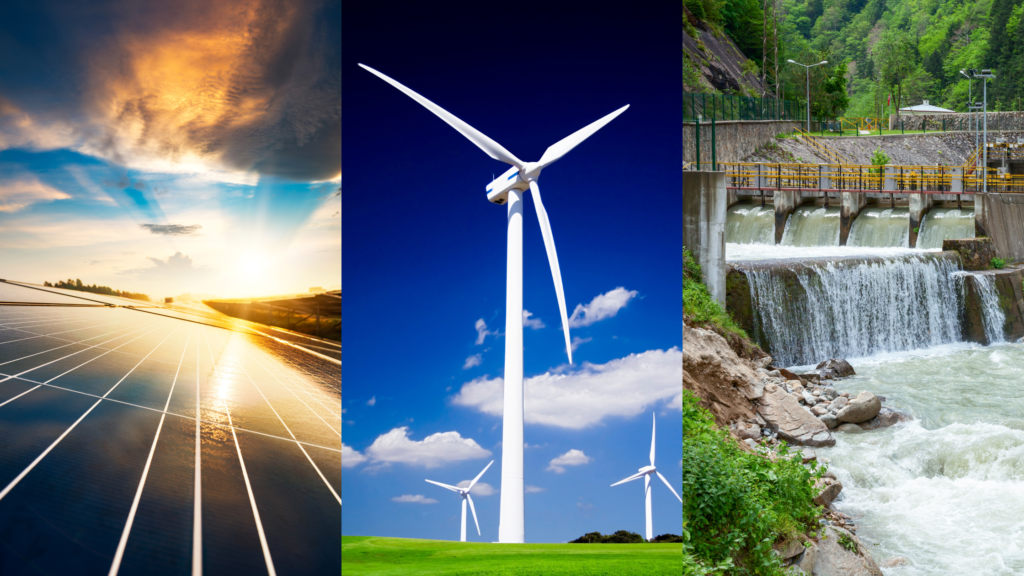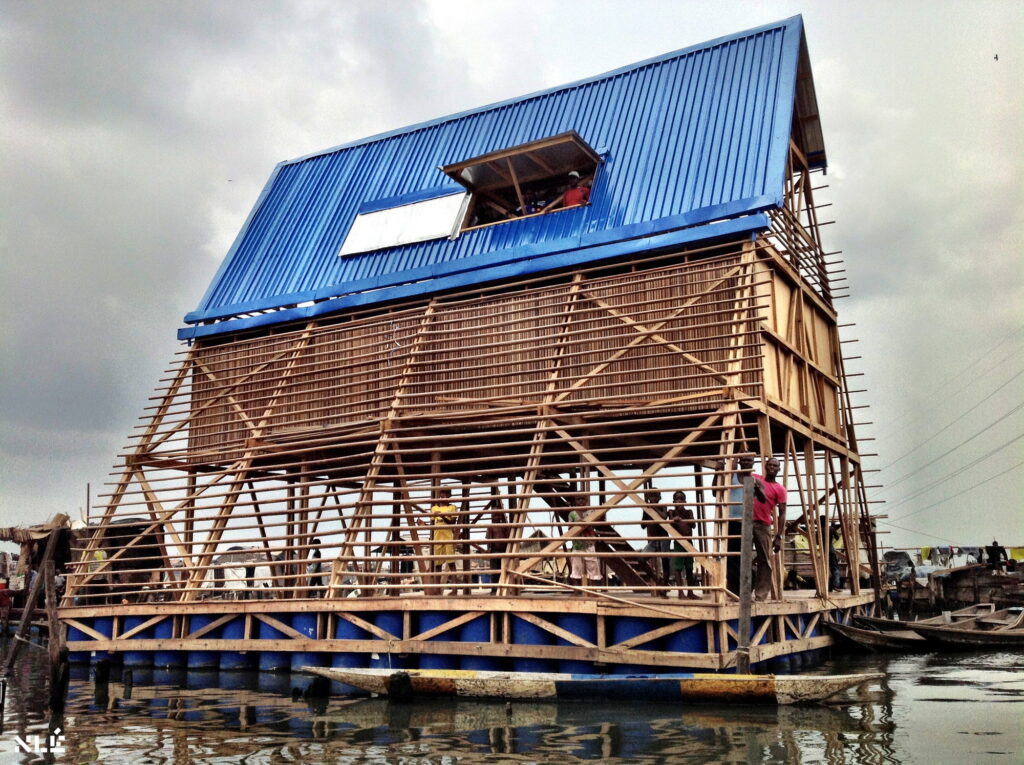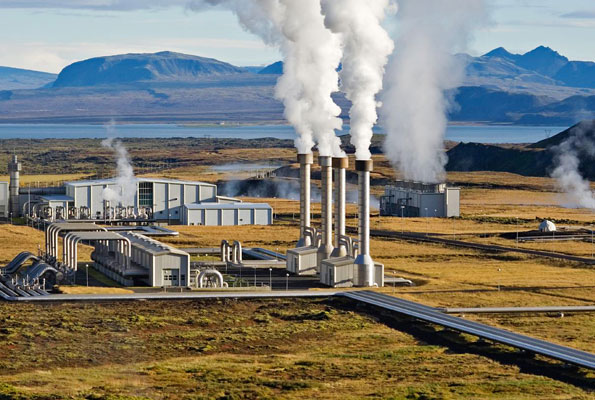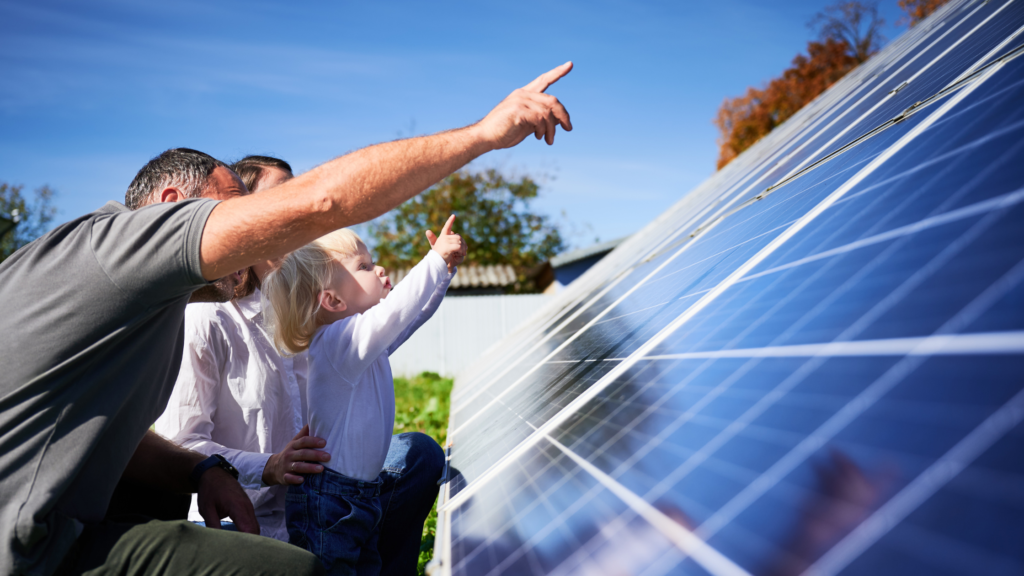Our planet faces a critical challenge: ensuring a reliable energy supply for a growing population while protecting the environment for generations to come. Fossil fuels, the traditional sources of energy, come with a hefty price tag – air pollution that harms human health, greenhouse gas emissions that contribute to climate change, and geopolitical instability due to dependence on foreign oil. Renewable energy offers a compelling solution. Unlike fossil fuels, renewable energy sources are naturally replenished and have minimal environmental impact. By embracing renewable energy, we can create a cleaner, healthier, and more secure future for all.
Environmental Benefits
- Reduction of Greenhouse Gases: Burning fossil fuels releases harmful greenhouse gasses that contribute to climate change. Renewable energy sources generate electricity with minimal greenhouse gas emissions, helping mitigate climate change and its devastating impacts.
- Conservation of Natural Resources: Fossil fuels are a finite resource. Renewable energy sources, like solar and wind power, are continuously replenished by natural processes, ensuring a sustainable energy future.
Economic Benefits
Job creation: The renewable energy sector is a booming job market, experiencing significant growth and creating exciting opportunities across various fields such as:
- Engineering: The development, design, and implementation of renewable energy technologies require skilled engineers in fields like electrical, mechanical, and materials engineering.
- Construction: Building solar panels, wind turbines, geothermal plants, and the necessary infrastructure creates jobs in construction, welding, and electrical wiring.
- Manufacturing: The manufacturing of renewable energy technologies like solar panels, wind turbine components, and biofuels generates jobs in production, assembly, and quality control.
- Installation and Maintenance: The installation, operation, and maintenance of renewable energy systems create ongoing jobs for skilled technicians and service professionals.
Energy independence: Many countries rely on importing fossil fuels to meet their energy demands. This dependence exposes them to price fluctuations in the global market and geopolitical instability. Renewable energy offers a path to energy independence. By harnessing domestic renewable resources like solar, wind, or geothermal energy, countries can:
- Reduce reliance on imports: Countries with well-developed renewable energy sectors can significantly reduce their dependence on imported fossil fuels, lessening the impact of price fluctuations and supply disruptions.
- Boost domestic investment: The transition to renewable energy necessitates investment in research, development, and infrastructure. This investment stays within the country, stimulating domestic economic activity and creating jobs.
- Enhance energy security: A diversified energy mix with a strong renewable component safeguards a nation’s energy security, reducing vulnerability to external factors that can impact fossil fuel supplies.
Social Benefits
Improved Public Health: Fossil fuel reliance comes with a hidden cost – air pollution. Burning fossil fuels releases harmful pollutants that contribute to respiratory illnesses, heart disease, and other health problems. Renewable energy sources like solar, wind, and geothermal power generate electricity without polluting the air. By transitioning to renewables, we can significantly improve air quality, leading to:
- Reduced respiratory illnesses: Lower air pollution levels lead to a decrease in respiratory illnesses like asthma, bronchitis, and lung cancer. This translates to a healthier population and reduced strain on healthcare systems.
- Improved cardiovascular health: Air pollution can exacerbate heart disease, a leading cause of death globally. The cleaner air associated with renewable energy helps reduce the risk of heart disease, promoting better overall health.
- Increased quality of life: Clean air improves our overall quality of life. We can enjoy spending time outdoors without worrying about the health risks associated with air pollution.
Community Development: Renewable energy projects aren’t just about generating clean electricity; they can also be powerful tools for community development. Here’s how:
- Revitalizing rural communities: Many projects, such as wind farms and solar installations, are located in rural areas. These projects can bring much-needed investment to these communities, creating jobs in construction, operation, and maintenance.
- Energy access for all: Renewable energy mini-grids can provide access to clean and reliable electricity in remote areas that lack access to traditional power grids. This empowers communities, improves living standards, and opens doors to new educational and economic opportunities.
- Sustainable livelihoods: Renewable energy projects can create sustainable livelihood opportunities for local communities. For example, communities can participate in the ownership and management of renewable energy projects, generating income and fostering a sense of ownership.
Types of Renewable Energy

- Solar Power: Harnessing the sun’s energy through photovoltaic cells is one of the fastest-growing renewable energy sources. Solar panels can be installed on rooftops, in large solar farms, or even integrated into building materials.
- Wind Energy: Wind turbines convert the wind’s kinetic energy into electricity. Wind farms are a familiar sight in many parts of the world and are becoming increasingly efficient and cost-effective.
- Hydropower: The power of moving water has been harnessed for electricity generation for centuries. Hydropower dams use the force of falling water to spin turbines and generate electricity.
Case Studies
Renewable energy is not just a theoretical concept; it’s powering communities around the world. These projects demonstrate how renewable energy can empower communities, create jobs, and foster more positive attitudes towards clean energy.


- Makoko Floating School is an innovative school built on a lagoon in Lagos, Nigeria. The school was designed with reused empty plastic barrels framed with wood. It uses solar panels to provide clean electricity, demonstrating the potential of solar power to serve even the most remote communities. The school has received funding from Lagos State’s tourism ministry to install solar power and also light up the Makoko waterfront.
- Olkaria Geothermal Power Plant is a geothermal power station in Kenya, with an installed capacity of 268.3 megawatts. It harnesses the Earth’s heat to generate clean electricity, providing a reliable and sustainable energy source for Kenya’s growing population. The power station is located in the Hell’s Gate National Park along with its sister stations, Olkaria II and Olkaria III. The entire Olkaria complex had an installed capacity of 810.3 MW as of 2020.
Challenges
Despite its vast potential, renewable energy faces challenges that must be addressed to unlock a clean and sustainable energy future. Technical barriers remain, such as the need for improved methods to store and integrate renewable energy sources into existing electricity grids. These require ongoing technological advancements. Additionally, market and policy hurdles exist. Supportive policies and financial incentives are crucial for encouraging investment in renewable energy infrastructure and overcoming cost competitiveness challenges compared to traditional energy sources.
Future
Advancements in energy storage, smart grid technologies, and next-generation solar and wind power are poised to further enhance the efficiency and affordability of these sustainable solutions. This technological progress is bolstered by a global shift towards renewable energy. A growing number of countries are setting ambitious renewable energy targets, and investments are reaching record highs. This global commitment positions renewable energy not just as a viable alternative, but as the cornerstone of a sustainable future for our planet.
Ready to Make a Difference? Join Us at Bottom Billion Corporation. BBC is a dedicated advocate for innovative solutions to global challenges in the energy sector. Visit our website to learn more about renewable energy projects around the world and explore ways you can get involved in building a more inclusive future.



